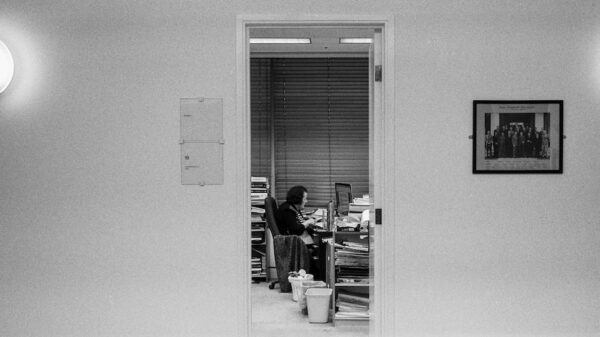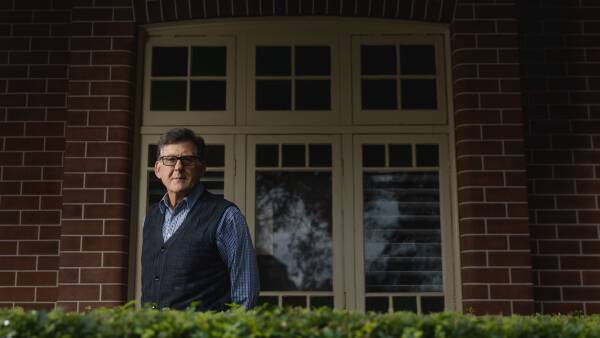Historian and former diplomat Lachlan Strahan has released a memoir detailing the day Gough Whitlam was controversially dismissed as Prime Minister of Australia on November 11, 1975. Strahan recalls being picked up from his primary school in Melbourne by a neighbor, as his politically active mother was too upset to drive. This event has become a significant memory for many Australians, akin to the news of John F. Kennedy‘s assassination in 1963, marking a turning point in the nation’s political landscape.
The Dismissal, as it is now known, left an indelible mark on those who experienced it. Michelle Grattan, a journalist who witnessed the events unfold, describes it as a “life-changing day” for many in Canberra. The political climate leading up to the Dismissal was fraught with tension, as the opposition, led by Malcolm Fraser, blocked Whitlam’s budget in the Senate, leaving the government in a precarious position.
Political Maneuvering and the Dismissal
The events of that day did not arise in a vacuum. Whitlam had been hesitant to call an election despite mounting pressure, as he prepared to approach Governor-General John Kerr for a half-Senate election. Unbeknownst to him, Kerr was already planning to dismiss him. At 1 PM, Kerr executed the dismissal, sending shockwaves through Parliament House and the broader Australian community.
On the steps of Parliament, Whitlam delivered a powerful speech that encapsulated the moment’s gravity. “Well may we say God Save the Queen, because nothing will save the governor-general,” he proclaimed, condemning Fraser as “Kerr’s cur.” The crowd reacted passionately, with demonstrators flocking to Canberra, while emotions ran high among Labor supporters and journalists alike.
In the days that followed, the political landscape shifted dramatically. Whitlam urged his supporters to “maintain your rage and enthusiasm through the campaign,” a rallying cry that resonated as Labor began its campaign for the upcoming election. Despite the initial momentum, opinion polls indicated declining support for Labor, marking a stark contrast to the enthusiastic reception of Whitlam’s “It’s Time” slogan in 1972.
The Impact and Legacy of the Dismissal
Whitlam’s government, despite its tumultuous end, is often remembered for its significant reforms in health, education, and social policy. However, it was marred by administrative disarray and a lack of cohesive leadership, which critics argue contributed to its downfall. The media’s portrayal of Whitlam became increasingly hostile as challenges mounted, and he became both a symbol of political ambition and a cautionary tale for future Labor administrations.
Kerr faced significant backlash for his role in the Dismissal. Critics argue that he acted prematurely and failed to warn Whitlam of his intentions, a stance that many believe undermined his integrity. Notably, even Fraser later expressed regret that Kerr did not consult Whitlam before taking such a drastic step.
The Dismissal left deep fractures within Australian politics, but Labor’s recovery was swifter than anticipated, regaining power within a decade. While the constitutional framework allowing the governor-general to dismiss a government remains unchanged, one significant reform emerged: Fraser successfully campaigned for a referendum aimed at preventing state governments from appointing rogue candidates to fill Senate vacancies.
As Australia reflects on the Dismissal nearly five decades later, the combination of Whitlam, Fraser, and Kerr remains a unique historical moment unlikely to be replicated. David Solomon, Whitlam’s press secretary during the crisis, maintains that the events of 1975 continue to resonate, emphasizing the importance of understanding this pivotal chapter in Australian history.
Professor Frank Bongiorno from the Australian National University notes that contemporary students find the Dismissal both fascinating and distant, reminiscent of ancient historical events. He suggests that while the stakes were high, today’s political landscape bears little resemblance to the turmoil of the 1970s.
Whitlam’s legacy lives on as a transformative figure in Australian history. He famously quipped that, like Caesar Augustus, he left a lasting mark on the nation, transforming its infrastructure and social policies. As discussions surrounding the Dismissal continue, it remains a defining moment in Australia’s political narrative.



































































